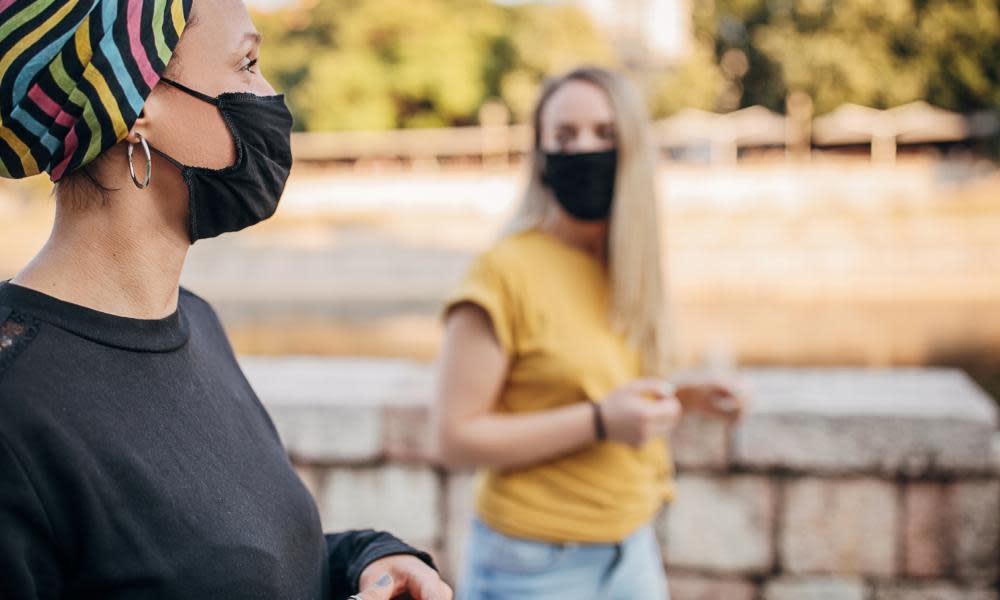Covid vaccine does not affect fertility but misinformation persists

Amy Taylor was chatting to friends over a Zoom drink when the conversation took an unexpected turn. One of the group – all in their early 30s, mostly university-educated and in professional jobs – mentioned that she had concerns about the Covid vaccine because she wanted to try for a baby in the next year or two.
“I was surprised when others said they were also a bit anxious. Then I started thinking maybe I should be worried too – even though I’m pro-vaccinations and I know this is the way out of the pandemic,” said Taylor*. “This really plays into the fertility insecurity that lots of women in their 30s have anyway – have I left it too late, will I need IVF, should I freeze my eggs? We don’t want anything else that could interfere with our chances of motherhood.”
Concern about fertility is one of the major drivers of vaccine hesitancy, despite explicit reassurances from doctors and scientists. The suggestion that Covid vaccinations could affect fertility was “nonsense”, Jonathan Van-Tam, England’s deputy chief medical officer, said on ITV’s Good Morning Britain last week. There was “no evidence at all that there are any issues in relation to planning a family or fertility,” he added.
The Royal College of Midwives and the Royal College of Obstetricians and Gynaecologists (RCOG) have issued a joint statement about misinformation on the effect of Covid vaccinations on fertility. “There is no biologically plausible mechanism by which current vaccines would cause any impact on women’s fertility,” said Edward Morris, president of the RCOG.
The British Fertility Society and the Association of Reproductive and Clinical Scientists also published guidance saying there was “absolutely no evidence, and no theoretical reason, that any of the vaccines can affect the fertility of women or men”.
People can start fertility treatment immediately after being vaccinated, and those who are donating eggs or sperm for the use of others can take the vaccine. Women who have had recurrent miscarriages and are now trying to conceive do not need to postpone being vaccinated, the guidance said.
Raj Mathur, executive committee chair of the British Fertility Society, said there was very little data on vaccine hesitancy or the reasons for it. “But anecdotally lots of people have expressed concerns to me and colleagues – even among healthcare workers,” he told the Observer.
“It’s based on misinformation, but it’s out there unfortunately. Vaccination does not stop you getting pregnant, and is the best way of reducing the risk of getting Covid when you are pregnant.”
Related: For those who want children, Covid has intensified the 'panic years' | Nell Frizzell
Virginia Beckett, clinical lead for reproductive medicine in Bradford Teaching Hospitals NHS Foundation Trust, said she also had anecdotal evidence of vaccine hesitancy among women of childbearing age. “We’ve seen healthcare workers declining the vaccination because of these concerns – and that’s an advance warning, because most women in this age range have not even been offered vaccinations yet,” she said.
Misinformation online had largely stemmed from a comment posted by a former employee at Pfizer that the immune response triggered by its vaccine could attack the placenta, she said. The post has since been deleted, and its content discredited. “But the idea has inevitably snowballed, especially among people who already had doubts about the vaccine. It’s quite a worry.” She added: “This misinformation is very difficult to tackle. Social media plays a huge part in many people’s lives, and you can easily be taken to quite conspiratorial and dark places. If you already have anxieties, there’s plenty of stuff to reinforce that.”
Beckett posted a video on Twitter rebutting claims about the effect of the vaccines on fertility, saying that it was “not biologically possible”. But, she added, “what we do know as a matter of fact is that Covid is dangerous for pregnant women”.
At the peak of the current wave, 9% of all patients in intensive care in the UK were either pregnant or had recently delivered a baby, she said. “We’ve seen some really sick patients in the last trimester [of pregnancy], and we’ve seen a threefold increase in early deliveries. All of us want to do everything to protect our chances of building a family. But it’s a perverse way of trying to achieve that by avoiding vaccination, especially as we know Covid is not going away.”
*Not her real name

 Yahoo News
Yahoo News 
